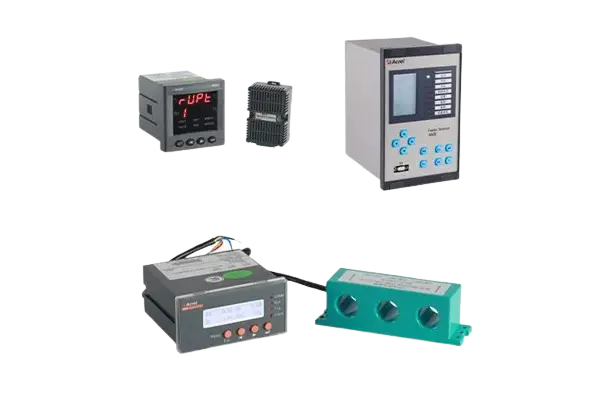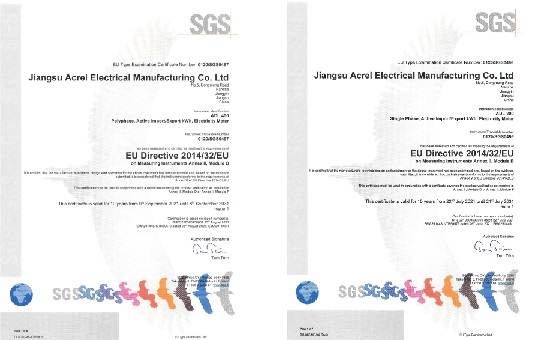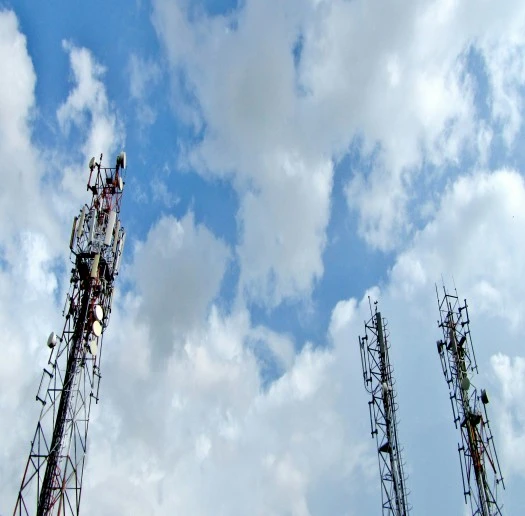

An electric energy meter is a device used to measure and record energy consumption in power systems. In energy management, the electric energy meter not only needs to have basic power measurement functions but also needs to meet a series of specific requirements to ensure effective monitoring and management of energy usage.
Accurate Measurement
The electric energy meter should be capable of accurately measuring active and reactive power, providing precise energy consumption data. Accuracy is a crucial technical parameter of the energy meter, typically required to meet or exceed specified standards, such as Class 1.0 or higher.
Real-Time Monitoring
The electric energy meter should be capable of real-time monitoring of energy usage, including parameters such as voltage, current, power, and power factor. Real-time monitoring helps to promptly identify energy waste and abnormal electricity usage, providing timely data support for energy management.
Data Storage and Transmission
The electric energy meter should be capable of storing a large amount of consumption data and transmitting the data to the backend management system via network or wireless communication. This facilitates remote monitoring and management, enhancing the efficiency and convenience of energy control.
With the advancement of technology and the development of intelligence, smart electric energy meters play an increasingly important role in energy management. In addition to the basic functions of traditional meters, smart electric energy meters offer the following advantages:
Higher Accuracy and Real-Time Capability
Smart electric energy meters utilize integrated circuit and microprocessor technology, enabling higher measurement accuracy and stronger real-time capability. This helps to more accurately reflect power consumption, providing more precise data support for energy management.
Rich Functionality
Smart electric energy meters offer various functions such as data storage, real-time monitoring, and data transmission, meeting the diverse needs of energy management. Additionally, smart electric energy meters can interact with energy management systems or smart home systems, enabling optimization of electricity loads and application of peak and off-peak pricing strategies.
Energy Monitoring and Data Analysis
Smart electric energy meters can continuously monitor a company's electricity usage and transmit the data to the backend management system. By analyzing this data, companies can understand the electricity consumption of various departments and devices, identify bottlenecks and potentials in energy usage, and develop more effective energy management strategies.
Choose According to Power Usage Scenarios
Different usage scenarios have different requirements for electric energy meters. For instance, the industrial manufacturing sector needs meters that can monitor device power consumption, while commercial buildings require meters that can monitor power supply and usage in real-time. Therefore, selection should be based on specific power usage scenarios.
Consider Accuracy and Real-Time Capability
Accuracy and real-time capability are important parameters of electric energy meters. In energy management, high accuracy and strong real-time capability meters should be selected to ensure data accuracy and timeliness.
Consider Data Storage and Transmission Capabilities
In energy management, meters with data storage and transmission capabilities should be selected to enable data transmission to the backend management system for remote monitoring and management.
Consider the Degree of Intelligence
With the development of smart technology, smart electric energy meters are increasingly applied in energy management. Therefore, the degree of intelligence should be considered when selecting electric energy meters, such as whether they have remote control and adjustment functions and support multiple communication protocols.
In energy management, choosing the right electric energy meter is key to ensuring accurate measurement of power consumption, efficient management of energy usage, and effective cost control. The selection should be based on specific application scenarios and requirements to ensure that the chosen electric energy meter meets the needs of energy management, contributing to efficient energy utilization and savings.
 English
English 日本語
日本語 한국어
한국어 français
français Deutsch
Deutsch Español
Español italiano
italiano русский
русский português
português tiếng việt
tiếng việt Türkçe
Türkçe العربية
العربية






